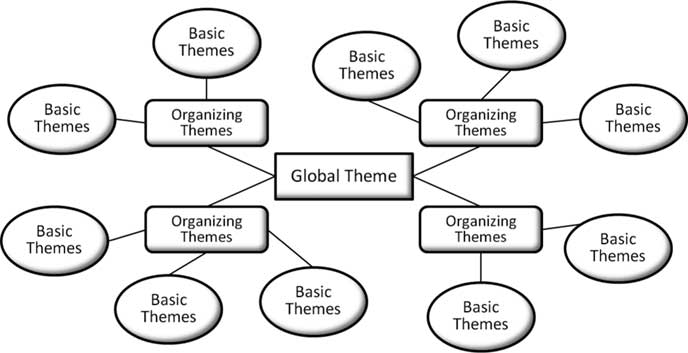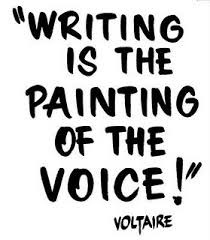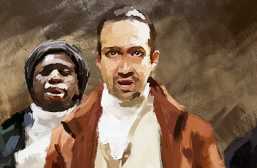Crafting the College Essay: Method and Motivation
This is an examination of the more common writing challenges faced by many college students. The first section covers the problems students encounter and suggests ways to eliminate them. The second section gives a set of options for composing an essay.
“What the learner needs to do is not only to learn from the teacher or role model how to understand what she has to do and the way to do it, but to become able to acquire for herself the skill that the teacher has, rather than acquiring it as a matter of routine.” (Intelligent Virtue, Julia Annas)
There are plenty of ways to enhance the learning experience through writing. Initially, the readings should provide an ample source of information to begin thinking constructively about the topic in particular and the world in general. The college campus is the best place to explore since it provides resources such as libraries and professionals in their field. Next, the courses will guide your thinking into the direction of intellectual growth and can serve as a starting point for finding creative ways to develop clear and thought-provoking analysis in written form. Lastly, fellow classmates will, to varying degrees, instill a passion for discovery and intuition that will resound in your writing.
Matter 1: “I am not entirely clear on what the question is asking”
The main obstacle to completing a writing assignment is being unfamiliar with the subject or relating to the material. In addition, students are primarily inexperienced writers. The most practical approach for clarifying and simplifying the question is to check the meaning or background of the topic being questioned. The best way to accomplish this is by using a standard dictionary or an extensive encyclopedia. This should eliminate any lingering doubt or minimize the complexity of the requirement.
Once momentum has been achieved, there are likely to be times when the pace slows due to repetitiveness or disorientation. This is when another reference text can help to spur a new idea or expression. A thesaurus contains terms that mean the same thing as the word you are using but in a different context. At the very least, it can help you reconsider your current stance in a way that may steer your writing closer to completion.
These reference books are necessary at the beginning of the writing assignment. They enable the student to explore an unfamiliar or complex question, to gather information to include in the final draft, and to arrange categories of discussion in written form.
Matter 2: “I don’t know where to find the information”
As a starting point, the section above provides direction on establishing patterns or revealing gaps in the student’s knowledge about a given field of study. A student usually attempts to write a report, an essay, or a research manuscript with little more than his desk, some paper, the course textbook, and a pencil. Although it is often more than others have to start with, it is still only about a third of what is used by top performing students.
An experienced teacher will suggest that the students read all types of publications in order to become knowledgeable with their writing assignment. A good source of information or detail are newspapers, magazines, and novels. The reason periodicals are a good source of knowledge is that they provide the essentials in a concise format, often with a graphical representation of more complicated theories and facts, often adding commentary by credible sources in the profession. A novel by a prolific author or expert is another way to understand the overall structure of the topic you are going to write about in a more insightful and congenial manner.
The reference books listed earlier are vital for understanding the terms and concepts that will inevitably arise in newspapers, magazines, and academic journals. The novel can be useful in showing the student the various styles that are used for effectively relating information to an audience, in one form or another. Of course, the student will not immediately know to turn to these sources without having first been reminded to do so by a parent, teacher, or coach. In the absence of such, the student is left to seek the advice from peers or role models portrayed in the media or those they encounter throughout the daily routine. For the reluctant student, there are people and places they can turn to help meet the deadline.
Matter 3: “I don’t know who can check my writing”
After the writing is stable it is advisable to review, examine, and question the content, the structure, and the accuracy of the material. The student can more than likely spot obvious errors of grammar, vague phrasing, or inadequate content. At times, the teacher can provide some level of support but will not cover the entire assignment due to time constraint. Still, some students are left to rely on other school administrators that may be more willing to take a closer look; among them, a different teacher, a librarian, a coach, a senior student, or other members of an academic community.
Once the initial difficulty has been addressed, there are still many more hurdles to confront. At this point, the writing can be completed by using any number of strategies. The following section covers several ways to make progress when all other methods have faltered. Over time, some will prove more useful than others and may not be required as the writer matures or as alternative means of writing present themselves.
Hint 1: Pondering
Once all of these factors have been set in motion, the student is ready to begin the actual writing assignment. Begin by interpreting the question to the point where a sensible attempt can be made at: setting your stance on the matter, supplying examples from reliable sources, and including opposing viewpoints in order to make a well-rounded and less narrow argument.

The best way to go about this is to closely examine the question in its entirety. Then begin to read (or re-read) the text, sentence by sentence and paragraph by paragraph until there is a viable connection between the question, reading material, and your own interpretation. Somewhere within the pages of text and the wording of the inquiry is one, if not more, related themes upon which to form the basis of a thesis along with corresponding topics and subtopics. Once this is under way, you can begin to write.
Hint 2: Outlining
Another part of the process is to sketch an outline of your position within the question: the claims you will make to convince the audience that your view is relevant, and how you intend to incorporate the counterargument into your conclusion. The outline will serve to organize the information you will use in the body paragraphs. A thorough outline will facilitate the writing of the assignment because it is an efficient instrument for maintaining relevant information and for managing the flow of reasoning and analysis within the writing.

This is necessary for generating ideas and connections between the question and the reading in an orderly but concise manner. The outline serves as a mechanism for preserving the draft in all phases of composition and revision. The planning supported by an outline will save time, boost your grade, and when done carefully will prove valuable in other disciplines. It is the instrument that propels the writing forward by keeping thoughts clear and organized. In essence, the outline exists as a framework that lends itself to translating the writer’s perspective and comprehension. It is an apparatus no different than a wireframe used as a basis for the design of a consumer product, per se. In complementary disciplines it goes by another moniker—that is—stenciling. Thereto, as in the writing profession, it is practical for tracing the pattern behind the finished product without being burdened by the intricacies of the full development or production cycle.
Hint 3: Drafting
The next part of the procedure requires creating a rough draft of how the writing will be presented. Oddly enough, this means writing without regard to many of the standard grammatical rules nor the actual requirement of the question by gathering thoughts and arranging them in a less stringent format. When the student needs to make progress, this method of free-writing helps to focus on the main idea as well as a preliminary order of subtopics that must be addressed, without being burdened by the intricacies of grammar or conventions, at least initially. Of course, the drafting process will involve many cycles of success or failure, but the end result is always clear and consistent writing in a more forgiving manner. Be aware that leaving out the drafting portion will be reflected in the final grade.
After several iterations, the outline will stabilize to the point where external sources will be required in order to develop and expand the writing beyond the limitations of the course or the student. The first place to look for information is in the course itself and the discussion that emanates from class. It is the main place where crucial judgments can be made regarding what to include and what to omit in the final draft. During this phase, make good use of your campus or public library; it is replete with a variety of publications and librarians who can offer useful advice on how to navigate the seemingly endless supply of research articles, publications, and textbooks.
Hint 4: Proofreading
Once all primary and intermediary drafting portions have been completed, it is beneficial to read the draft again in order to check for errors that have been overlooked; if possible, by a person other than the student. What makes sense to the author may not be readily apparent or compelling to another person.

As a final step in the drafting process, it may be worthwhile to read the assigned text once again, followed by reading the written response to the text soon thereafter. Although tedious and time-consuming, it could serve a dual purpose. First, to realign the student’s work with the textual source and, secondly, to force a proofreading phase which may provide further motivation to identify and eliminate any lingering syntactical, grammatical, or thematic inconsistencies. The greater the number of intermediary steps preceding the final draft, the stronger and more transparent the conveyance of argument.
In all, it’s important to examine the question closely and establish connections between it and the required reading while you are reading (and re-reading) the text. Next, it’s necessary to build an outline to organize your ideas and keep yourself focused on the prompt. This is an especially important skill that will carry over into other courses.
The researching of additional material is another essential aspect of your writing, in all college courses. Make use of the resources available to you; specifically, a database or a librarian, to make this a much less daunting experience. Always leave time for editing and redrafting, to make sure that the final result is polished and cogent.
Hint 5: Composing

Aside from all the previous recommendations, there are other minor details that are indispensable for most written assignments. The introduction paragraph is the best place to capture the attention and interest of the audience. It is usually the place where the main argument of the essay can be found as well as a map of the entire essay. The body paragraphs are used to describe all the relevant information in an organized and thorough manner in order to guide the reader along from the minor points to all the pertinent facts, through to any potential implications stemming from the analysis. The conclusion paragraph can typically perform three functions: review the important claims of the essay in a more confident tone, reiterate one of the many points made in the preceding paragraphs to greater effect, or launch a unique theme arising from the preceding discussion that the reader can explore to further their curiosity or knowledge.
The Finish Line
The majority of students who enroll in a college English course are under pressure to comprehend a reading, interpret a related inquiry to that reading, and produce an individually written response in return for a grade. This alone may not seem sufficient cause for sudden and inexplicable hesitance, but when we consider that students often have math, science, history, and other course requirements to deal with simultaneously, taking the time to read critically and write a coherent essay seems justifiably difficult, if not impossible. Aside from finding time to complete assignments, the reading is often obscure in both content and author. Another challenge is becoming accustomed to a professor’s unique teaching style. It is much more likely that time constraints, content difficulty, and issues with class structure or instruction style are the real obstacles to performing well in English courses than any sort of personal inadequacy.
“When you give everyone a voice and give people power, the system usually ends up in a really good place. So, what we view our role as, is giving people that power.”—Mark Zuckerberg
There are many disruptions and distractions standing in the way of completing a college degree and the ensuing career. There are people that will impact decisions, books that will shape and reshape thinking, and events marking the ups and downs of education. This is most apparent in the English courses taken and the writing assignments that must be completed through the school years. The textbook may not be the most entertaining or inspiring ever read or studied. The vast majority of the time, the professor is a knowledgeable source for the course material but that doesn’t necessarily guarantee that your experience will be optimal. Of course, people inside and outside the classroom will place unreasonable burdens and overwhelming demands upon even the most resilient students.
So, visit the libraries and read additional books related to the writing topic. Consider making an appointment with the professor or counselor to seek their advice about ways to excel in the course and throughout college. Make it a point to study together with as many classmates as time and commitments will allow in order to have a place to present ideas or to test your thesis or to kindle an early literary voice. There is no better time than the present to retrace the successful path of a famous writer that you always admired as a child in order to help you overcome any personal struggles or obstacles with the writing course.

In brief, it takes an entire array of people, places, and provisions to start and end a writing assignment and to verify that the writing is worthy of a high score or of any attention at all. As demonstrated throughout, an excellent essay goes through a lengthy process of prewriting, writing, and rewriting. Adhering to this results in flawless writing which, in turn, is often indicative of clear thinking achieved through extensive, rigorous, and laborious effort. The strongest writers know how to communicate a topic and how to convey related information to the intended audience. Through effective use of topic insight, they make things easy to understand: in layman terms, so to speak. These are the distinctive qualities of a competent writer. The person who remains focused on this approach will be rewarded with the ability to implement their writing technique independently, precisely, or eventually at will.
What do you think? Leave a comment.











A good essay. After forty years of university teaching, and knowing that the issues addressed in this essay matter to more than just English courses, it is nice to see a concise summary on writing that might help students. Hopefully, this essay gets some attention beyond readers of The Artifice.
Thanks for sharing your experience about writing academic essays.
Absolutely love this article, it helped a lot especially as I was reading this as a desperate fresher facing her first assessment. =)
I recommend a step to research: Try to write your essay first without sources. It allows you to clear your thoughts, detect biases, find what info you lack, what sources you will need, allow you to be really original and be less anxious about the quality or have a writer’s drought.
Yes. Write down what you know/think you know as a first draft, then check the research to see how on the ball you are.
Proper good content! I do have a couple of questions though.
1 – I’m someone who can write a decent essay in terms of content and structuring. However, my immediate tendency is to use long and complicated sentence structures, which are confusing to the reader. (I have to consciously break things down here hah). How can I improve the quality of my writing?
2 – How do you get better at the editing stage? Spotting mistakes in very poor quality writing is easy, but I find it difficult to find them in my own writing. I also struggle with the finer points of the editing stage, like deciding if a section is necessary, or if my argument is too roundabout.
Point 1, is covered in the first paragraph of the Proofreading section. The more people have a chance to read it before the final draft, the less prone you will be to writing winded sentences, or, lingering paragraphs. You will notice the strain on their part as they read an unfamiliar writing sample and scurry to keep it all the strands straight in their mind. The more diverse the would-be audience, the greater the refinement. Point 2, you have to develop an inner critic that will be harsh with the perceived soundness of your writing. Only then can you mature to the level that will require less external support. Keep in mind that you are more than likely to be writing for the other rather than for mere personal fulfillment, despite being the ultimate objective. Even writing that was composed in a vacuum can reveal unexpected insight, however.
Regarding your first question, I often also use overly complicated sentences too, usually in an attempt to reach the word limit, but my general rule of thumb is if your sentences still make sense and are coherent, then there’s really no issue. With your second question, I also struggle with finding mistakes within my own writing, mainly because I’ve been staring at it for hours. What I usually do is either walk away from writing for an extended period of time, or sleep overnight then get back to it with fresh eyes. Also reading the essay aloud as if to an audience helps you spot mistakes…
I’m about to get started on two 8-10 pages that are due on Wednesday. These are also the last two papers of my college career. Wish me luck!
I’m literally writing a literature review right now… Thanks for posting this now!
I wish you were my tutor at uni, you have a really brilliant mind and make everything simple and clear to understand, thank you.
Wonderfully written, excellent presentation!
No one tells you how to organise your information or anything when you start uni! I hadn’t been planning, it’s such a hard skill, for me anyway!
Your article couldn’t have come at a better time. I planned to finish my legal paper over the weekend, but got stuck in the muck of perfectionism and researching too much. After this I’ll probably start afresh with more confidence.
Really nice article. Wondering if you can recommend any book that inspired you? Or a top-three list of books that best helped to shape who you are and your overall perception towards getting work done! It would be very much appreciated! Thanks for all the good content!
The one book that spurred my interest was “Rebecca” by Daphne Du Maurier. I read it in one sitting over a two week Christmas vacation during high school. It was the main reading that really implored to me what was possible to achieve through words. In terms of grammar, the publication that has hone my writing is the The New Yorker.
A tip I came upon in terms of editing was to change the font or the size of the font when rereading and editing. It really helps because often times it is easy to gloss over your essay when you’ve looked at it so many times. At that point, rereading isn’t really helping. When you change the font or the size your eyes are forced to actually read the essay and pick up on mistakes you would have missed.
I’ve always done really well on research papers to the point where I was actually happy to get assigned them because I knew it just means I’m about to get a big, fat A. Nowadays, all my classes are specific to the field I’m getting into (computer graphics and game development) and I don’t have to write papers anymore. Kind of a shame… Kind of.
Thanks. This are invaluable to the scripting writing process!
I was taking an english class with a huge focus on literary criticism. Where was this in August?! Just kidding.
This post is so timely! I have a term paper due next week that I haven’t had the time to start.
Enjoy learning and implementing all those tips from you, which help me to get a better student.
I found the tips you gave us very useful.
I’ve just started my sociology course at Bristol you tips have calmed me down.
I’m an international exchange student doing half of the History A-Levels, and this finally brought some clarity in how I am supposed to write an essay (as my teachers never really told me what the cause is why I’m barely passing, even though I know my stuff and I’ve been revising like crazy …) – it’s been the structure of my essays! This really helped to understand what I can do better now.
This is one of the most valuable lessons I’ve ever had – nobody explained there’s a framework you can apply each time. From now on, writing essays is effortless and enjoyable.
I have a Finances essay due Monday and you’ve given me some great ideas.
I was just about to start writing an essay. This is a strange coincidence.
I have 3000 words to write for Wednesday. I’ve done all my reading and notes, I just have to start writing it and I felt like I couldn’t make it, so thank you for this piece.
Something I wish I read during my first year of college, thank you!
I used to write essays in college for extra cash. This was a very through article, with some awesome tips. Thank you!
I’m a firm believer in outlining before composing any sort of college essay and I believe that is an important first few steps to have. Another one I think is important is being well educated in what you’re going to be writing about. This article does a great job of hitting the most important points in making a detailed and well written essay!
This is a good introduction to university writing. Students really need more preparation for writing at an academic level, and this offers a good breakdown of the process.
There is so much that has been said about college essays, as against an editorial piece that one goes about writing. But in my experience of having written both, there’s a lot more emphasis given to the research aspect in a college essay method, as against the “Subject” that many look for in an online or a newspaper piece. Either ways, the impact it creates is what eventually matters.
This is very well articulated though!
A great article, and clearly based on experience. Another point I often emphasise to my students is if they can explain the concepts, or the structure of their arguments in simple language prior to writing, it will make the writing process itself much easier-as they will be concentrating on their language rather than formulating and trying to understand or explain concepts at the same time-and then more complex and/or refined language can unfold.
A few points from my own experience:
Matter 1: Turn to your professor. They may not have expressed their intent perfectly through the assigned question, so ask for specific things they want to see if you do not understand the question. They will also sit down and brainstorm with you, helping rework your idea into a researchable thesis.
Matter 3: Most staff at post-secondary have jobs beyond reading your drafts. Librarians or coaches do not want to waste their time doing something outside their job when they have other things to get done. Senior students are the best for this, or trading drafts for peer-editing with several classmates lets you see common patterns of what people like and dislike in your draft for use in revision. Some schools also have dedicated writing consultants, paid or volunteers, who will sit down with you.
Hint 3: I was always told you cannot edit a blank page. Write something, even if it is crap. The writing process will also help reveal your ideas if you are unsure of your argument.
Hint 4: My strategy is change the font and text size. The words look unfamiliar to your brain and mistakes will stand out more as you read through.
From middle school term papers all the way through my grad school papers, I could not figure out a way to organize my sources easily. As a 12 year old I wrote fact after fact after fact on colored notecards, and tried to organize each topic by color. I got far too overwhelmed. As a straight-A student, I received a C on my 7th grade term paper because of this. Just too much information.
And that hasn’t improved since 1998. It’s gotten way way more overwhelming. I attended grad school from 2011-2013. The internet now existed in personally accessible ways, and there was so much information available at each click, that as members of this society, we have forgotten how to memorize facts small or large.
I still struggle with the abundance of sources, but I have figured out two things:
1) I’m the one driving the paper. Facts come up and source after source can be referenced, but my ideas matter, and I’m taking this information where it logically leads me. If I get into an internet hole in search of one fact, I step back and say – is this piece of information essential to my point. Usually, it’s not.
2) I overheard a tip from a fellow grad student which he learned working in a high powered consultancy. It was simple. Write each main point on a different slide of a PowerPoint presentation, and log fact and author on the appropriate slide. You can then move them around, mix them up, reverse them.
With more information, we need more confidence in our own conclusion, but we also need more discernment. Now so much of the information we find is not checked by publishers or editors.
What a great article! As a university student, you really helped me address a lot of the issues I’ve been having with writing essays!
This was a really helpful article, thank you so much! I feel so much more confident in attacking my essays now
This is an interesting read. I enjoyed how thoughtful it was in the process of writing which can too often be missed by students at the university level.
I am a university English teacher, and I teach writing at every level. The information in this article clearly covers the writing process; however, I find that the writer needs to distinguish between drafting, revising, and proofreading. After Hint 4: Drafting, the next hint should be Hint: Revising. Revision is “re-seeing” a paper: adding, deleting, and reorganizing. The craft of revision is the stuff of real writing. As Donald Murray wisely said, “When a draft is completed, the job of writing can begin.”
Once the paper has been revised thoroughly, then Hint 6: Proofreading can begin. Proofreading is simply searching for errors. As the author pointed out, when drafting, writers should not worry themselves with grammar! Instead, wait until the proofreading stage to ferret out all of the comma errors, typos, etc.
Another idea in this paper touched a sore spot for me: where can the students go for help with their writing? The author stated, “At times, the teacher can provide some level of support but will not cover the entire assignment due to time constraint.” What does that mean? The job of the college English teacher is to help students with their writing. We cannot tutor each student one-on-one, but technology has provided us with many useful tools for giving quality feedback. Teachers have to be willing to put in the time to help the students.
Interesting article! I think that students can often skip over the steps of drafting and proofreading and miss out on reaching their writings full potential.
Helpful – I teach at a university (sessional) and the standard come sometimes be interesting! The learning associated with the craft of academic writing needs to be consolidated prior to the beginning rather than finally honing this skill by the end of the degree. Quality peer groups add to this and allowing time for them is our challenge – thanks for the article!
As a sessional teacher at university, understanding the craft of writing is a challenge. this article pulls it apart for the reader and offers valuable tips for beginning. I find it difficult to read many papers due the structure (or lack of). I think our challenge is how to promote the learning for students rather than the doing – peer support groups and making time for these can offer skills.
loved how clear and concise each tip was! super useful in and out of the classroom
“What the learner needs to do is not only to learn from the teacher or role model how to understand what she has to do and the way to do it, but to become able to acquire for herself the skill that the teacher has, rather than acquiring it as a matter of routine.” (Intelligent Virtue, Julia Annas)
This is something all learners should take from this as a key takeaway. Great tips!
Very good article and very helpful for students organizing an essay. Another tip I would add would be to do some research on the topic for the essay so you can compare it to your knowledge without sources to verify work. Overall great points in your article! love it !
A great article, full of astute observations. Personally, I find structuring my thoughts to write a clutter-free and readable essay the most challenging. As soon as I’m done researching, I’m full of these ideas, thoughts and insights and I find myself extremely overwhelmed. Which piece of information goes where, is this information relevant at all, among other things, are one of the first things that come to my mind.
I’m in the middle of writing my final essays for the semester, and scrolling upon this article seems timely! Crafting an essay is not easy, despite it being so necessary for many degrees. Always helpful to have extra hints out there.
Story-writing and article essays can definitely be nerve-wracking. I feel that you concisely place your points neatly in this article.
I find the best essays I write are those that seemingly emerge from the source material I’m working with. After identifying a topic from the source material, I do a broad literature scan (through JSTOR or a range of databases on EBSCOhost) to search for applicable secondary sources. The hardest part, I find, is separating my own thoughts and ideas from those presented by primary and secondary authors. However, this part requires time: ideas must be mulled over until they take form.
Fleshing a solid thesis is integral for any essay to succeed. Without your thesis, your essay will travel and tangle itself in ideas that might relate to each other, but do not present a comprehensible argument. Like you mention in your Pondering section, the global theme must be established before you can move forward with writing. Otherwise, you’re going to write without a clear purpose.
I am quite late to the party as I just joined this site, but I enjoyed this piece a lot. I am an adjunct college writing professor who spent many years as a tutor prior to finishing my MA and becoming a professor. While tutoring, I gathered experiences with every level of student–from phonics, to SAT prep, to students of all ages with learning differences, to ELL adults, to undergrads across myriad disciplines, to grad students, etc., etc.. My tutoring experiences afforded me the opportunity to understand student-writer mind more clearly. In the role of tutor, I was never a “grader,” so students felt more comfortable discussing their worries, concerns, and (self-proclaimed) inadequacies with me.
A consistent trend throughout my various tutoring gigs and sessions was that students recognized terms like “outline,” “rough draft,” and “proofreading/editing,” but rarely were they taught the proper way to utilize those tools and skills to develop a recursive and effective writing process. Instead, it seems like a lot of their writing teachers either assumed that the skills were already taught and grasped or assumed that students would figure it out since the terms seem to be self explanatory. Some of these students did figure it out on their own with little problem, but to many others, the writing process felt like nothing more than a daunting compilation of busy work. Of course, this is a generalization, and it would be to my own detriment to suggest that *all* writing teachers make this mistake, but I came across this issue too many times to ignore.
To your article’s point, I appreciate the way you approached the writing process in a simple, step-by-step guide rather than just shouting “IT’S RECURSIVE!!!” and calling it a day. It is also so important that you pointed out that there are many campus resources (tutors, prof. office hours, librarians, etc.) to help with this process. I currently teach the exact same class (introduction to college writing) at both a private, four-year liberal arts college and a community college; I see wealthy, prep school students and high school dropouts alike struggle with the writing process in similar ways. My favorite line from your article addresses this point. You said, “It is much more likely that time constraints, content difficulty, and issues with class structure or instruction style are the real obstacles to performing well in English courses than any sort of personal inadequacy.” I find that, when students of all backgrounds, levels, and abilities do the work and practice the writing process, there is a lightbulb moment during which the realize how effective it really is.
All of this is to say, I am so glad to see the writing process broken down and explained in this way. Thanks for sharing.
This seems to be a good model not just for English, but for any subject generally. Though the humanities are of particular note.